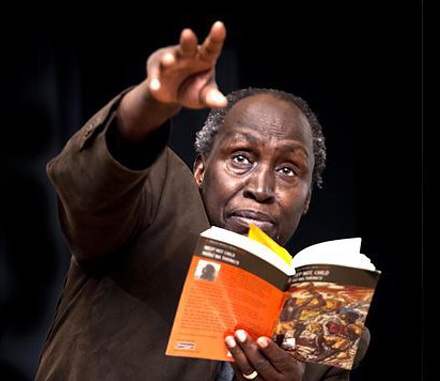By VICTOR ANGULA
Africa is the continent which has as yet not experienced the liberating power of the printed word.
The irony of it is that while the 1960s and 1970s produced some of the best writers from the African soil the world has ever seen such as Chinua Achebe, Ngugi wa Thiong’o, Wole Soyinka, etc., Africa has failed to produce writers of their caliber during the last 30 years.
It’s even bad that these African literary giants and other notable writers from the African soil have failed to thrive in the recent past of 30 years (excluding writers such as Nadine Gordimer, Wilbur Smith, JM Coetzee and other Africans of European descent of course).
Indeed Africa’s publishing industry has stagnated abysmally despite the advantages of modern technology.
Namibia has fared worse. Namibia has not produced a single world acclaimed writer; not even a writer of note by the standards of Africa. This means that the power of the printed word has not been experienced on the African continent and more so in Namibia.
The power of the media, especially the power of the printed word, in changing the mind of a society is undeniable. The industrialized and developed societies of the world have achieved their success in no small part due to the power of the printed word. The invention of the printing press revolutionized the Western world.
The printing press literally dragged Europeans out of their caves to make them build for themselves a highly technologically advanced civilization.
There is no doubt that Africa and the rest of the Third World can expect nothing less than a revolution which is a result of the print media.
One of the yardsticks to measure the level or extent or possibility for success of any nation is by looking at the nation’s literature – whether the nation is writing books or not. When a country’s publishing industry is neglected and dull, surely no enlightenment would be taking place in such a society even when you have some of the best schools and universities in the world.
Enlightenment means people have sensible, practical, modern attitudes and ways of doing things for the betterment of society. And this comes more from books than just from formal education.
Enlightenment, as opposed to just education, is what creates a society where there is no corruption, tribalism, favoritism, and social discord. Democracy and good governance thrive in a society where there is enlightenment.
In an enlightened society there would not be high unemployment rates and social or economic exclusion. Equality, fairness and justice, are possible only in a society where enlightenment has diffused through all social classes as a result of the print media.
Unfortunately Namibia’s publishing industry does not exist. Even as there are such small and tenuous industries as the Namibian music industry, film industry, theatre industry, fashion industry, and even visual art industry, it is the publishing industry which has failed to see the light of the day.
The only publishers Namibia has are publishers who publish school textbooks. These publishers do not represent a publishing industry. A publishing industry is one that is thriving on the literature part of publishing. It’s one which publishes fiction and non-fiction books meant for the consumption of those who are not in the formal education system.
The enlightenment which comes from books is not the one which comes from school and academic textbooks, but that which comes from literature.
Thirty years after independence and freedom from Apartheid, there is not even one bookshop in Katutura. Thirty years after independence, there is only one library in the whole of Oshana region. Thirty years after independence, Namibia’s publishing industry is still in the womb.
That is what I call a missed opportunity.
IN THE PHOTO: Ngugi wa Thiong’o who is one of a few celebrated African writers. (Image courtesy of africanartist.blogspot.com)







